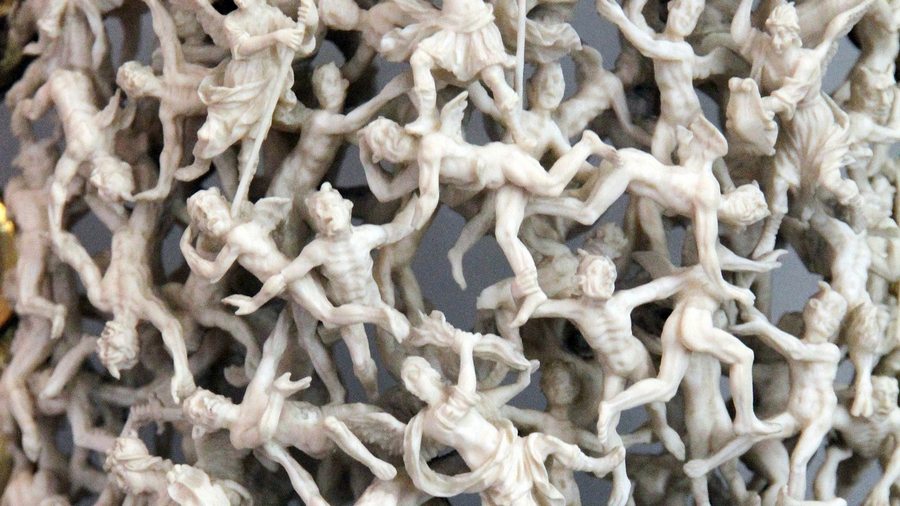“Bhikkhus, there are these three kinds of persons found existing in the world. What three? One whose mind is like an open sore, one whose mind is like lightning, and one whose mind is like a diamond.
(1) “And what, bhikkhus, is the person whose mind is like an open sore? Here, some person is prone to anger and easily exasperated. Even if he is criticized slightly he loses his temper and becomes irritated, hostile, and stubborn; he displays irritation, hatred, and bitterness. Just as a festering sore, if struck by a stick or a shard, will discharge even more matter, so too some person here is prone to anger … and displays irritation, hatred, and bitterness. This person is said to have a mind like an open sore.
(2) “And what is the person whose mind is like lightning? Here, some person understands as it really is: ‘This is suffering,’ and ‘This is the origin of suffering,’ and ‘This is the cessation of suffering,’ and ‘This is the way leading to the cessation of suffering.’ Just as, in the dense darkness of night, a man with good sight can see forms by a flash of lightning, so too some person here understands as it really is: ‘This is suffering’ … ‘This is the way leading to the cessation of suffering.’ This person is said to have a mind like lightning.
(3) “And what is the person whose mind is like a diamond? Here, with the destruction of the taints, some person realizes for himself with direct knowledge, in this very life, the taintless liberation of mind, liberation by wisdom, and having entered upon it, dwells in it. Just as there is nothing that a diamond cannot cut, whether gem or stone, so too, with the destruction of the taints, some person realizes for himself with direct knowledge … the taintless liberation of mind, liberation by wisdom, and … dwells in it. This person is said to have a mind like a diamond.
“These, bhikkhus, are the three kinds of persons found existing in the world.”
Read this translation of Aṅguttara Nikāya 3.25 Vajirūpamasutta: Diamond by Bhikkhu Bodhi on SuttaCentral.net. Or read a different translation on SuttaCentral.net. Or listen on PaliAudio.com or SC-Voice.net.










